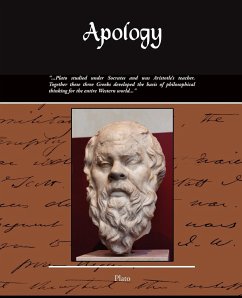Plato studied under Socrates and was Aristotle's teacher. Together these three Greeks developed the basis of philosophical thinking for the entire Western world. Plato was also a writer, mathematician, and founder of the Academy in Athens, which was the first university in Europe. In Euthyphro Socrates discusses the nature of piety. He is on his way to address the senate. In Apology he will defend the charges of corrupting the youth of Athens and in Crito he explains to friends that having benefited from the laws of the state in the past, he cannot violate them now simply because they inconvenience him. These three volumes make an excellent resource for studying Socrates and his world in Athens.







